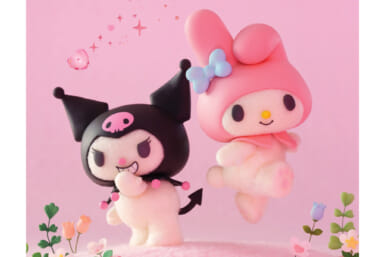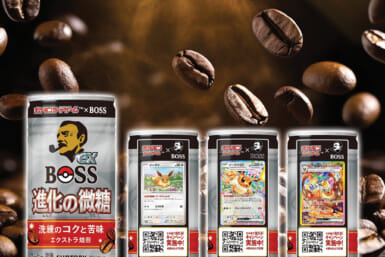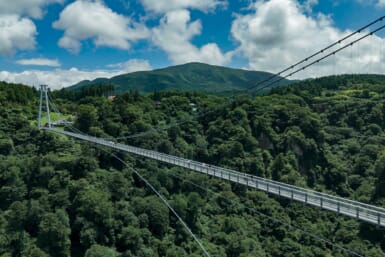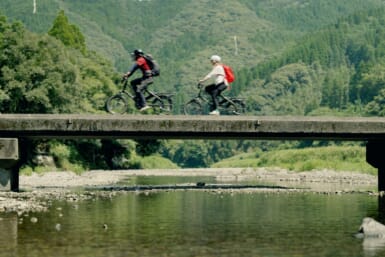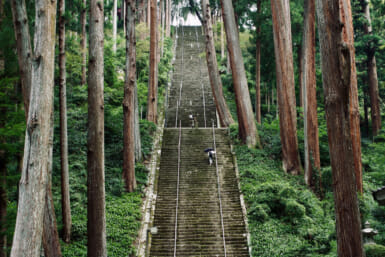On January 16, the world lost visionary director David Lynch, whose unique style gave rise to the term “Lynchian.” Meant to describe the surreal, dark and dream-like feel of his movies, many have tried to emulate a “Lynchian” atmosphere in their own stories, but none have fully captured it. It’s actually hard to describe what a “Lynchian” movie is, as the director’s filmography is wonderfully varied, ranging from Eraserhead to The Elephant Man and Dune. One thing is certain, though, whatever it was that David Lynch did, Japan adored it. The love affair between the two began well over 30 years ago with Twin Peaks.
Japan’s Twin Peaks Mania
Despite limited availability on Japanese TV in the 1990s, Twin Peaks, the story of an FBI agent investigating the murder of a young woman in an eerie town, took Japan by storm. A 1992 segment of Entertainment Tonight reported that a 14-tape set of the drama sold over 30,000 copies here, and that was back when VHS tapes were worth their weight in gold. Japanese fans also collected Twin Peaks apparel, magazines and books, with sales of the Japanese translation of The Secret Diary of Laura Palmer, a tie-in novel written by Lynch’s daughter Jennifer, surpassing a quarter of a million.
Those Japanese fans who needed more Twin Peaks started taking trips to the show’s shooting location in North Bend, Washington, about 30 miles from Seattle. There, they had the opportunity to eat at the favorite diner of FBI Special Agent Dale Cooper (Kyle MacLachlan) and visit the place where Laura Palmer’s body was found at the beginning of the first season. Some women, according to Martha Nochimson’s The Passion of David Lynch: Wild at Heart in Hollywood, apparently even took to reenacting the scene, wrapping themselves in plastic and lying motionless on the beach, connecting with a character that they felt represented their own suffering in a patriarchal society.
David Lynch Reciprocates
At the height of Twin Peaks’ popularity, there were even rumors of Japan’s sudden fascination with cherry pie, the favorite dessert of Agent Cooper. Of course, all that pie was just asking for a damn fine cup of coffee, so Lynch himself directed four commercials for Japan’s Georgia canned coffee. The result was something like a mini-season of Twin Peaks, telling a story (punctuated by breaks for Georgia coffee) of a missing persons’ investigation, with MacLachlan reprising his role as Cooper. Lynch’s style is all over these commercials. Unsurprisingly, they are very different to the Georgia ads with Bruce Willis. Today, Japanese fans of Twin Peaks who prefer their coffee in a cup can visit the Lynch-themed Cafe:Monochrome in Shibuya.
The show was such a phenomenon that Twin Peaks: Fire Walk with Me, a 1992 prequel to the TV series, was released in Japan three months before it came out in the States and became a minor hit here despite a mixed reception in its home country. One fan explained the show’s popularity in Japan thusly: “We are tired of regular dramas with regular human relationships,” which would be very hard to find in Twin Peaks. It was with these fans in mind that Lynch recorded a special message in 2017 when the series finally premiered on the Japanese channel WOWOW.
Kindred Spirits
Sometimes, people from two completely different cultures or hemispheres just click, which was definitely the case with Lynch and Japanese artists. It’s not a simple case of the former influencing the latter, with some critics, say, finding “traces of Lynch” in the more surreal portions of Hayao Miyazaki’s The Boy and the Heron. It’s more accurate to say that Japanese culture is innately receptive to the kind of weirdness that Lynch brings to cinema and television.
One reviewer called Nobuhiko Obayashi,“David Lynch, dipped in acid.” But it’d be equally fair to compare Lynch to Obayashi dipped in some other illicit substance, since both directors made their feature film debuts in 1977 with Eraserhead and House (one of the greatest Japanese horrors ever) respectively.
That being said, there’s no denying that Lynch directly influenced Japanese pop culture. Masahiro Ito, the art director for Silent Hill 2, took to X in August 2024 and openly admitted that the horror survival game took a lot of cues from Lynch’s 1997 drama Lost Highway. He mainly talked about initially wanting to feature multiple protagonists like in the movie, but internet fans uncovered other, much deeper similarities between Silent Hill 2 and Lost Highway.
1/2)
Some accounts have asked me if David Lynch’s films were the references for Silent Hill 2. Yes, of course, some of them were. When we were building the outline of the story, there was an idea that two or three guys were the main protagonists like Lost Highway’s story.But
— 伊藤暢達/Masahiro Ito (@adsk4) August 23, 2024
The game came out in 2001. The following year, Lynch further added to the Japanese zeitgeist with the release of an eight-minute experimental short film Darkened Room, which opens with home video recordings by Japanese creator Etsuko Shikata, a member of DavidLynch.com.
In the 90s, there were also talks of Lynch heading an adaptation of Domu, a comic by Akira creator Katsuhiro Otomo about psychic powers and murders at a massive apartment complex. Nothing came out of the project, but even without it, Lynch’s connection to Japan is undeniable, and the country will undoubtedly become an important guardian of the director’s memory for years to come.


